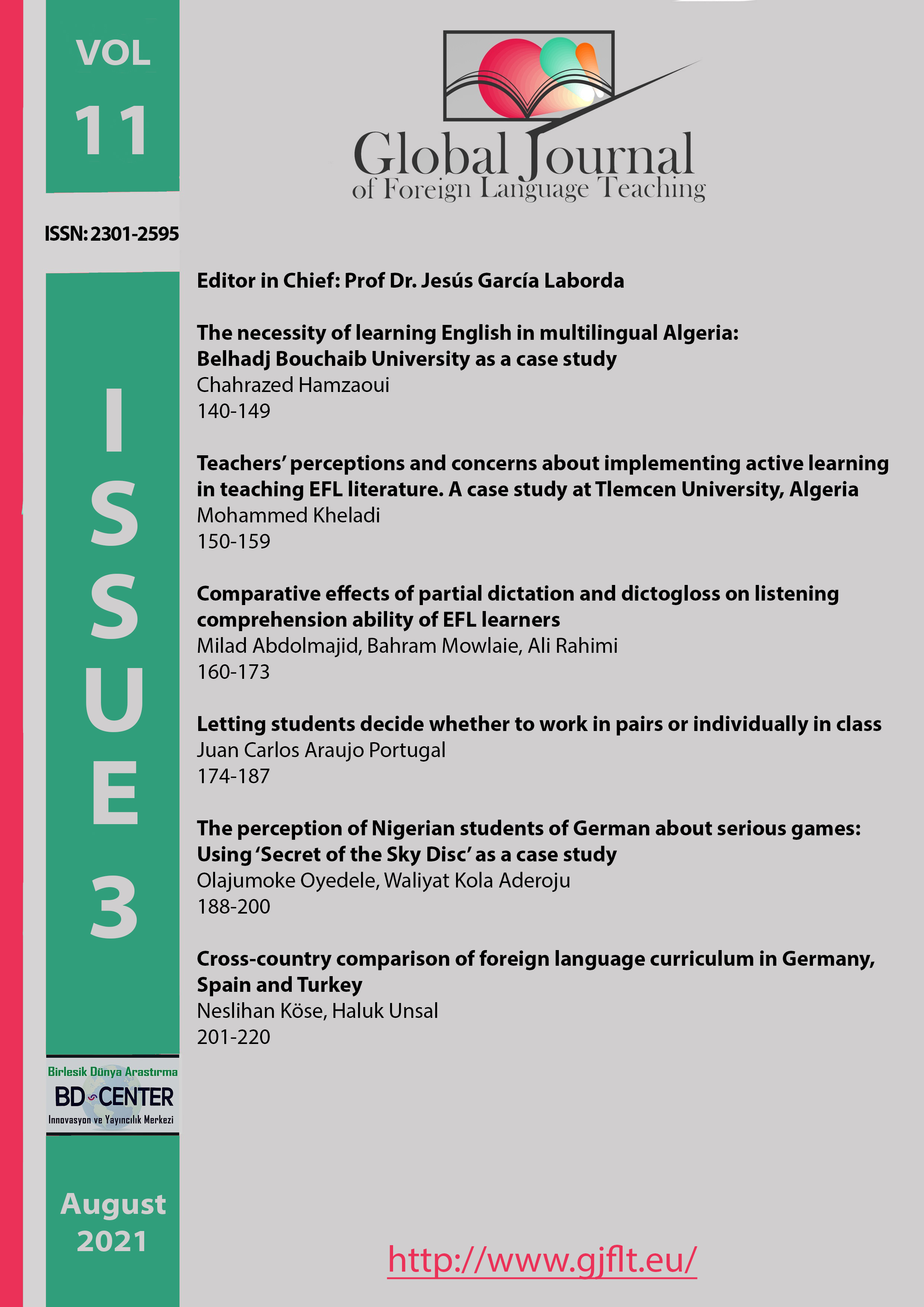The necessity of learning English in multilingual Algeria: Belhadj Bouchaib University as a case study
Main Article Content
Abstract
English is believed to be the language of science and technology; it helps increase the quality of education and promotes social and technological progress. This paper aimed at scrutinising the students’ language preference as a medium of instruction and their attitudes towards an entire English-based instruction. Its significance was established in checking whether or not English is a prerequisite among the learners via a written open-ended questionnaire and oral interview sessions. The present study is built on a mixed method approach to data collection and a probability sampling including 42 master students. These students receive their lectures in French. The findings revealed that the participants seem to hold in high esteem English and appraise it, for it is a valuable means of job opportunities and knowledge transfer compared with French, a language they consider far less effective for their professional career and the prosperity and socio-economic growth of their country.
Keywords: English, higher education, learning, multilingual Algeria, prerequisite.
Downloads
Article Details

This work is licensed under a Creative Commons Attribution 4.0 International License.
Authors who publish with this journal agree to the following terms:- Authors retain copyright and grant the journal right of first publication with the work simultaneously licensed under a Creative Commons Attribution License that allows others to share the work with an acknowledgement of the work's authorship and initial publication in this journal.
- Authors are able to enter into separate, additional contractual arrangements for the non-exclusive distribution of the journal's published version of the work (e.g., post it to an institutional repository or publish it in a book), with an acknowledgement of its initial publication in this journal.
- Authors are permitted and encouraged to post their work online (e.g., in institutional repositories or on their website) prior to and during the submission process, as it can lead to productive exchanges, as well as earlier and greater citation of published work (SeeThe Effect of Open Access).
